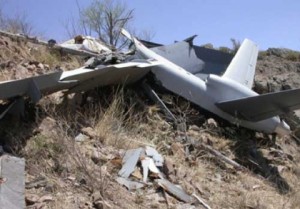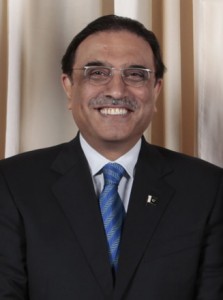Zardari Flees to Dubai Again Under Cover of “One Day” Trip: Is He Finished?
[youtube]http://www.youtube.com/watch?v=kfqrl17tZCw[/youtube]
Events continue to unfold at a very rapid pace in Pakistan. On Tuesday, I had noted, in comments to my post on the constitutional crisis facing the country over implementing the repeal of the National Reconciliation Ordinance, that Dawn was reporting that Pakistan’s President Asif Ali Zardari had said that he is ready to resign if that is what his political party desires. Further, Zardari had called for a meeting of Parliament for today, along with a meeting just before that with high officials in his PPP political party.
In the meantime, Wednesday was very eventful, as the civilian government and military traded multiple charges back and forth over the continuing memogate controversy. In the midst of that tussle, Prime Minister Yusuf Raza Gilani fired the country’s defense secretary and the military announced a new head for a “brigade known for its prominent role in coups”.
Today, it appears that Zardari has once again fled to Dubai. Both a scheduled medical follow-up to last month’s hospitalization in Dubai and a wedding have been given as reasons for this trip. So far, I’ve seen no mention in any of the stories on his departure of the Parliament meeting and political party meeting that he had called for today. Neither a “scheduled” medical trip nor a trip for a wedding make sense as explanations for a sudden trip which cancels these hastily called meetings. Despite the explanation that this is a one day trip, I’d be very surprised if he chooses to return to Pakistan.
Reuters reports on Zardari’s departure:
Pakistani President Asif Ali Zardari flew to Dubai on a scheduled one-day trip on Thursday, a member of the ruling party and sources said, while tensions grew over a memo seeking U.S. help in preventing a coup by Pakistan’s powerful military.
/snip/
Relations between Pakistan’s civilian government and the military have reached their lowest point since a coup in 1999, reducing the chances that the leadership can take on the country’s enormous social and economic challenges.
Military sources say that while they would like Zardari to go, it should be through constitutional means, not another of the coups that have marked Pakistan’s almost 65 years of independence.
“There is no talk in the military of a takeover,” a mid-level army officer, who requested anonymity because he was not authorized to speak on the matter, told Reuters.
“I don’t foresee a military coup.”
The stage is set, of course, for the “constitutional” removal of Zardari, as his government has a deadline of Monday for responding to the Supreme Court on the NRO case. As noted earlier this week, the Supreme Court has threatened to find the civilian government unfit to rule if it does not respond properly to its rulings. Zardari’s sudden departure, only four days before that deadline, would appear to be an admission that he and his government have no response to the charges.
Meanwhile, as if the Supreme Court breathing down its neck weren’t enough, the Zardari government has further enraged the military with the firing of the defense secretary: Read more →



